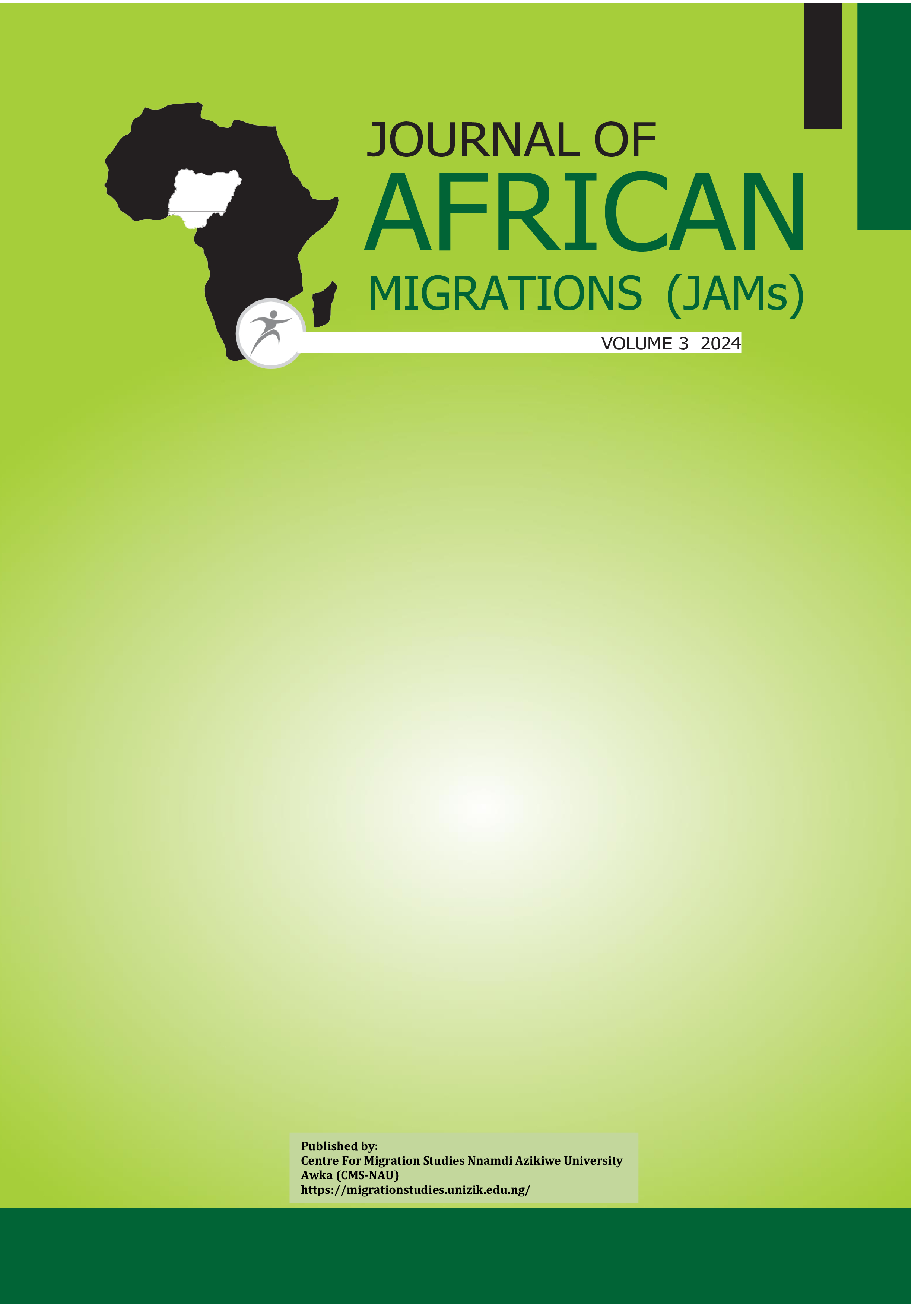Women-on-Women Oppression in Female Migrant Experiences: A Study of selected Nollywood films
Abstract
The narratives of female migrant experiences in Nigeria have never been told without enumerating its attendant vulnerabilities and prejudices that are unavoidably linked to irregular migration. This has manifested in various forms such as physical, mental, and emotional abuse, trafficking, exploitation, and domestic servitude. In all of these, patriarchy has mostly been blamed as the major source of women's subjugation. With the proliferation of gender discourses in search of equality in the relationship between men and women, little or no result has been recorded. Considering the multiple streams of women's oppression, there is a need to look inward to dig out the roles women play in the sustenance of patriarchal structures that form the bedrock of women’s subjugation. This research work interrogates the intra-gender relations in two Nollywood films, Kenneth Gyang’s Oloture (2019), and Lonzo Nzekwe’s Anchor Baby (2010). Employing the purposive sampling technique of the qualitative research methodology, these six migration-themed films were carefully selected and interrogated through content analysis. The research argument is framed around Crenshaw Kimberley’s theory of Intersectional Feminism and Tracie Utoh-Ezeajugh’s theory of Intra-genderism. Findings reveal that there are hidden rivalries that constantly exist among women which inhibit the actualization of female bonding. This study thus suggests that the female gender should break down all internal structures that are detrimental to their peaceful co-existence and focus more on genuine love and support for one another.

